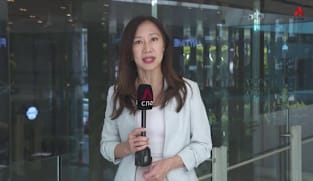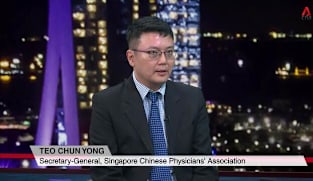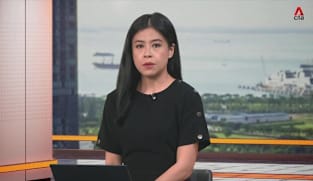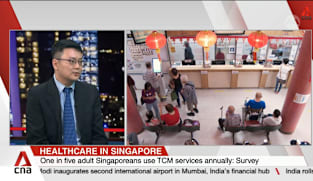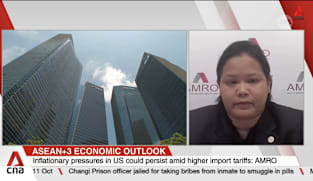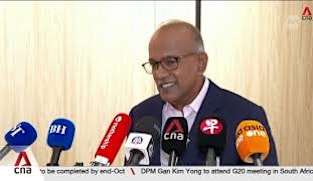Committee of Supply 2024 debate, Day 4: Tan See Leng on spurring business transformation, empowering local workers and evolving the CPF system
The minimum monthly qualifying salary for new Employment Pass (EP) applicants will rise to S$5,600 next year, up from S$5,000. For the financial services sector which has “higher wage norms”, it will be S$6,200, up from S$5,500. The move will take effect a year later for EP renewals. This was announced by Manpower Minister Tan See Leng in Parliament on Monday (Mar 4). He said regularly updating the qualifying salaries ensures a level playing field for locals. Dr Tan also gave an update on the Overseas Networks and Expertise (ONE) Pass, which was launched in January 2023 to attract top global talent as “rainmakers” - creators of opportunities in their respective fields. A year on, nearly 4,200 applications have been approved. Meanwhile, two new schemes aim to build up local talent and leadership. It was earlier revealed that the Global Business Leaders Programme will help companies develop Singaporean corporate leaders. Dr Tan announced a second scheme - the Overseas Markets Immersion Programme - to help companies looking to expand abroad. It will support these firms to send employees with little or no overseas experience for postings abroad and other forms of training. Career Conversion Programmes (CCPs) will also be enhanced to give more support to employers who reskill workers for new or enhanced roles. The salary support caps will be raised and the programmes will be expanded to cover more workers. It was also announced that Singapore’s retirement and re-employment ages will be raised to 64 and 69 respectively in 2026. This is part of an ongoing process that will see the ages reach 65 and 70 respectively by 2030. The minister also addressed concerns about the planned closure of the CPF Special Account (SA). It is not about saving costs for the Government but “a matter of principle”, he said. This means “right-siting” CPF monies such that only CPF savings committed for long-term retirement earn the higher long-term interest rate. Dr Tan reminded the House that the primary objective of the CPF system is to address retirement, housing and healthcare needs, and this will stay the same even as the system evolves. He said only 8,400 CPF members - relatively high-income earners representing less than one per cent of all members aged 55 and above - will not be able to fully transfer their SA savings to their Retirement Account (RA). Dr Tan did, however, recognise that close to 720,000 members with a median withdrawable SA balance of about S$2,000 might “experience some loss in liquidity”, and laid out several options for them.
The minimum monthly qualifying salary for new Employment Pass (EP) applicants will rise to S$5,600 next year, up from S$5,000. For the financial services sector which has “higher wage norms”, it will be S$6,200, up from S$5,500. The move will take effect a year later for EP renewals. This was announced by Manpower Minister Tan See Leng in Parliament on Monday (Mar 4). He said regularly updating the qualifying salaries ensures a level playing field for locals. Dr Tan also gave an update on the Overseas Networks and Expertise (ONE) Pass, which was launched in January 2023 to attract top global talent as “rainmakers” - creators of opportunities in their respective fields. A year on, nearly 4,200 applications have been approved. Meanwhile, two new schemes aim to build up local talent and leadership. It was earlier revealed that the Global Business Leaders Programme will help companies develop Singaporean corporate leaders. Dr Tan announced a second scheme - the Overseas Markets Immersion Programme - to help companies looking to expand abroad. It will support these firms to send employees with little or no overseas experience for postings abroad and other forms of training. Career Conversion Programmes (CCPs) will also be enhanced to give more support to employers who reskill workers for new or enhanced roles. The salary support caps will be raised and the programmes will be expanded to cover more workers. It was also announced that Singapore’s retirement and re-employment ages will be raised to 64 and 69 respectively in 2026. This is part of an ongoing process that will see the ages reach 65 and 70 respectively by 2030. The minister also addressed concerns about the planned closure of the CPF Special Account (SA). It is not about saving costs for the Government but “a matter of principle”, he said. This means “right-siting” CPF monies such that only CPF savings committed for long-term retirement earn the higher long-term interest rate. Dr Tan reminded the House that the primary objective of the CPF system is to address retirement, housing and healthcare needs, and this will stay the same even as the system evolves. He said only 8,400 CPF members - relatively high-income earners representing less than one per cent of all members aged 55 and above - will not be able to fully transfer their SA savings to their Retirement Account (RA). Dr Tan did, however, recognise that close to 720,000 members with a median withdrawable SA balance of about S$2,000 might “experience some loss in liquidity”, and laid out several options for them.









